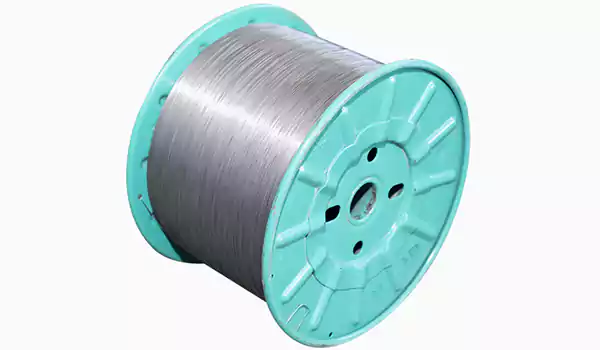
Settling on the fitting pipe option for your build necessitates awareness of its characteristics and use cases. Standard parameters involve substance, gauge, length, and permissible variances. Elements including pressure capacity, heat resistance, and anti-corrosion qualities guide pipe choice for industrial, commercial or household applications. Tubular conduits are applied in building works, industrial fabrication, infrastructure projects, water services, gas provision, drainage pipelines, structural applications and specific sectors
- Knowing project-specific constraints is critical to pick the right conduit
- Examine professional codes and standards for detailed piping specifications
- Base material selection on expected pressure, operating temperature and environmental corrosion threats
Steel Tubing: Power, Longevity, and Flexibility
Hollow steel tubing enjoys a reputation for high strength and is preferred across diverse industrial, structural and commercial contexts. Sustained toughness comes from their engineered construction and finishing processes. Made by shaping steel slabs or billets into tubular profiles with welding or seamless drawing, they show sustained resistance to rust and damage and long operational life even under harsh conditions. Malleable tube steel enables production of diverse profiles and geometries that match unique construction and fabrication demands. Used across heavy infrastructure, architectural frameworks and complex mechanical assemblies, tube steel's resilient strength, extended durability and versatility make it a cornerstone of modern industryExpanded Metal Grating: Improved Protection and Safety
Expanded metal mesh is commonly specified for projects that seek a balance of solid security and enhanced safety. Its open-celled structure allows visibility while still providing a physical barrier against unauthorized access and hazards. Configurable hole sizes and sheet gauges let the mesh be adapted to precise operational needs
- High durability of expanded metal protects against impact forces, vandalism and extreme weather
- Furthermore, its simple installation and low maintenance increase adoption across sectors
- Used to secure vital infrastructure and protect workers in industrial settings, expanded metal offers comprehensive protection
Metal Mesh Applications in Industrial Settings
Steel woven or expanded mesh is commonly used in industry for its strength, lasting durability and adaptable use. It contributes a durable scaffold for filtering, screening, strengthening and guarding applications. In civil construction, steel mesh is often embedded in concrete to strengthen tensile resistance and prevent cracking. Moreover, steel mesh serves in bridge works, tunnel linings and other civil projects to provide support and load distribution. Production lines use steel mesh in filters and screens to separate materials of distinct sizes, enabling sieving, sorting and purification. Applications in security and safety cover guardrails, fencing and enclosures that help avert unauthorized access and protect workers. High tensile strength makes steel mesh suitable for resisting impacts and forces, delivering dependable protection in tough environments
Structural Applications of Metallic Pipes
Inherent robustness makes metal pipes indispensable for diverse structural applications. Their configurability allows construction of rigid frameworks to support weight-bearing roles across sectors. In skyscrapers, bridges and underground piping networks, metal pipes supply essential backbone support and cope with tough environmental loads. Corrosion defence plus convenient fabrication cement their position in modern building practices
Choosing Optimal Tube Steel for Fabrication
When engaged in construction or fabrication, deciding on the right tube steel is pivotal. Offering strength, endurance and manageable weight, tube steel is ideal across many application types. However, the wide variety of grades and specifications means navigating tube steel options can be challenging
- Assess the intended role, load demands and operating environment to ensure success
- Aspects like wall thickness, diameter and material grade directly affect tube steel performance
Thick-walled, high-strength tube steel suits heavy builds, while thinner-walled, lighter steel fits lightweight uses
Work with qualified engineers or reliable suppliers to select the correct tube steel for your project
Construction Benefits of Using Expanded Metal
Expanded metal provides several functional and performance benefits suited to construction. The light mass aids installation efficiency and reduces the time and expense for labor. Moreover, the open structure boosts ventilation and drainage to reduce moisture-related issues. Its resilient durability makes it appropriate for demanding resistance-oriented applicationsMetal Pipe Connection Fundamentals
Joining methods for pipes are central to plumbing systems and ensure leak-free passage of liquids and gases. The right connector is chosen based on tube diameter, material makeup, pressure limits and application context. Widely implemented connection types are threaded, flanged and welded joints, each giving particular strength and sealing traits. Threaded fittings rely on interlocking male/female threads tightened together, flanged fittings employ bolt-secured flat faces, and welded fittings join sections permanently via fusion. Awareness of each connector's properties is necessary to ensure a functional, sealed piping system tube steelSteel Mesh as a Multipurpose DIY Material
Metal steel mesh is a strong, durable and adaptable material suitable for a wide range of DIY projects. The perforated, linked structure makes it appropriate for fences, screens and visual fixtures. Also, its easy-to-handle, lightweight nature makes it popular with both beginner and skilled DIY enthusiasts
- Think about employing steel mesh in your upcoming DIY build
Steel Pipes: From Plumbing to Architectural Reinforcement
Steel pipes play a central role in contemporary infrastructure and building works thanks to their robustness, endurance and versatility. Originally used mainly for plumbing and sanitary systems, metal pipes have evolved to play major roles in structural reinforcement and support. From base structures to networks for water and gas delivery, metal pipes furnish essential capabilities in modern infrastructure. Their robustness makes them suited for high pressures and heavy loads while corrosion tolerance ensures long-term performance and reliability. Additionally, pipes are highly formable and adaptable to various configurations to meet diverse application needs
Expanded Metal Design Options and Practicality
Expanded metal offers special design opportunities paired with effective functionality. Open formation makes it useful for architectural accents as well as industrial safety and security systems. Its load tolerance along with visual appeal adds to its desirability and usefulness
- Additionally, the open pattern enhances airflow and makes it suitable for areas demanding temperature control or heat release
- Expanded metal finds application in construction, production, transport, automotive and decorative design industries